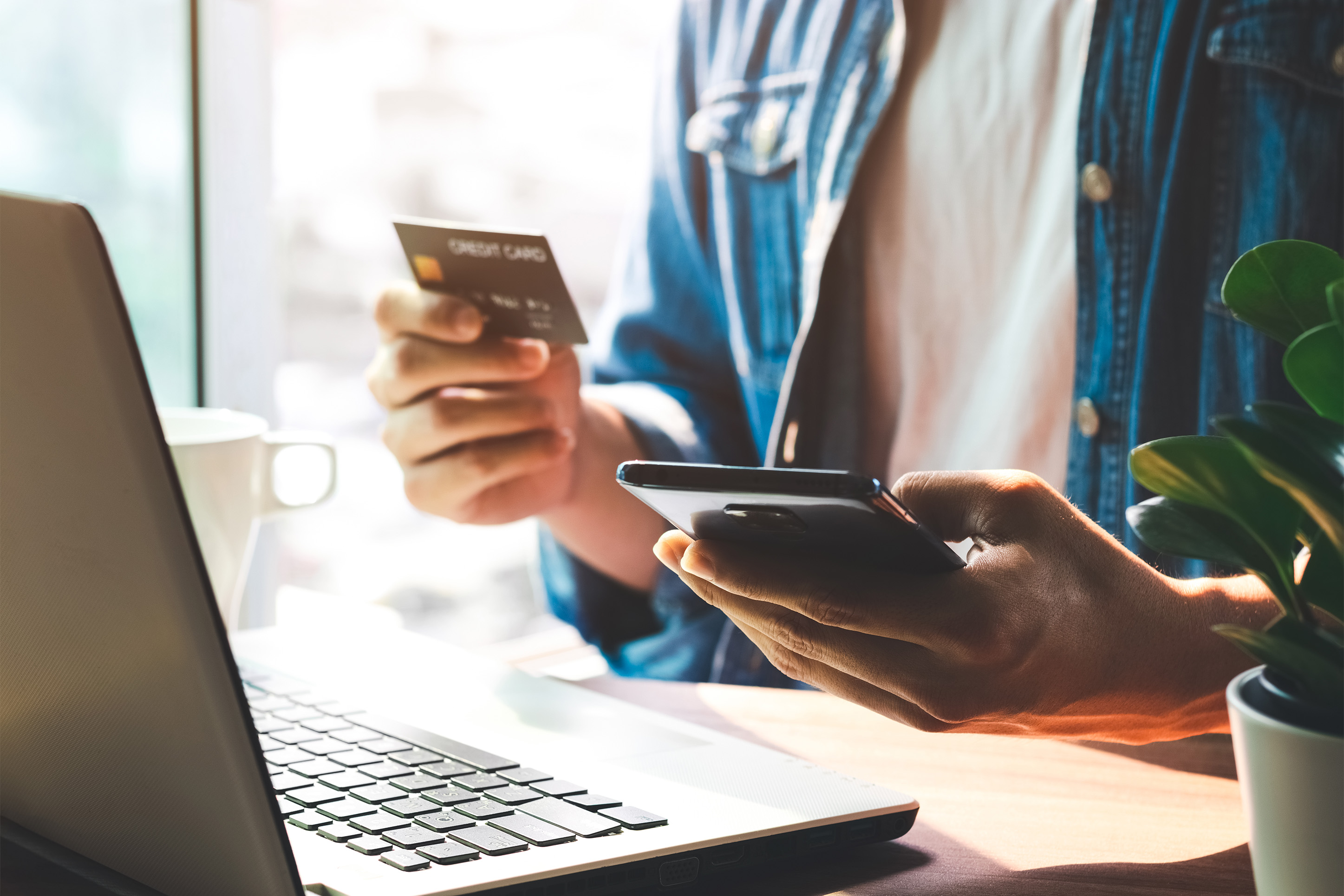Make sure your passwords are on point
The best option for safe passwords is to use a strong, randomly generated password and have a different one for each account you set up. Then store those securely in a password manager, so you don’t have to have every single password memorized or written down somewhere. And if scammers get access to one password, they won’t be able to log into any of your other accounts.
Verify site security before you enter information
When you look at the URL at the top of your screen, do you see the https:// or just http:// at the start of the web address? Is there a little lock icon next to it? That icon and the little s after the http mean that the site is secure and encrypted. If you don't see those security indicators, don’t enter your personal info (including your credit card number). Even though https:// guarantees that your communication is private and encrypted, it doesn’t guarantee that the site won’t try to scam you.

Shop at home or use a VPN
When you’re shopping online, it’s best to do it on your home wifi network. But if you’re making purchases in the library, at a cafe, or in a hotel, be sure to use a Virtual Private Network (VPN).
A VPN encrypts all the data you send and receive online. That means that no one else who’s on the same network can see what you’re looking at or access your info when you’re logging into your financial institution or entering your credit card number. Having a VPN is like having an extra deadbolt on the door between you and thieves who want to break into your house. It’s just smart to use when you’re on public internet connections.
Buy from sites you trust
It’s all too common for targeted social media ads to try to sell products that look great in the photos but don’t live up to your expectations in real life. Or worse, they might be products that aren’t even real but just a ruse to steal your personal information. When you shop online, be sure to buy from brands or sites you know and that have a good reputation. You can always check Better Business Bureau reviews if you’re not sure.
And even when it’s a store you’re familiar with, be sure to verify that it’s actually the site you think it is before you buy. Check the URL to make sure it looks legit before you purchase. If you’re trying to make a purchase from Target’s site, is the URL target.com, or is it misspelled or funky looking? If you see something suspicious, navigate to the store’s site directly instead of clicking on a link from somewhere else.

Check over your statements
No matter whether you’re shopping online or in person, it’s important to keep an eye on your bank statements to be sure you’re only charged for transactions you intended to make. Honest mistakes happen, so it’s always good to check-in. And if you’re the victim of fraud or your card number gets stolen, you’ll be able to notify your financial institution right away to put a hold on purchases and get a new card.
Use a credit card instead of debit
While both credit cards and debit cards have high levels of security to protect your money, credit cards offer an added layer of protection when you’re shopping online. That’s because a debit card is a direct line to the money in your bank account. So even though most debit cards have protections against fraudulent purchases, someone stealing your account info and draining your bank account could still have a significant short-term impact until you get it sorted out. Since credit cards are a line of credit, they’re one step removed from your actual cash, making them a little more secure to use (especially online).
Whether you’re looking for a credit card that can keep your money safe and earn you points while you shop, or you’re hoping to open a checking account with top security and easy online banking that lets you check your statements from anywhere, RMCU has your back. Apply to open your account, and see where your credit union can take you.*
*Must qualify for membership, On approved credit. Some restrictions may apply. Each account is privately insured up to $250,000 by American Share Insurance. By member’s choice, this institution is not federally insured.



